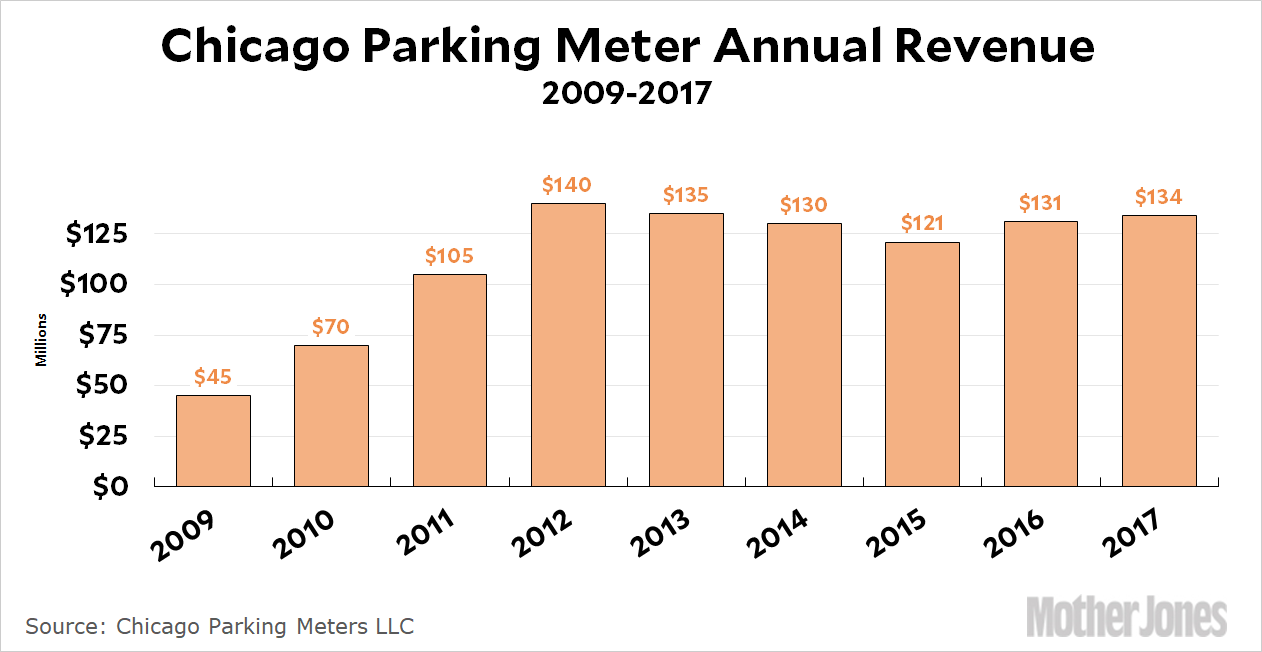Chicago parking meters
In 2008 Chicago signed a 75 year lease with a bank to run all the parking meters in Chicago. The results were terrible.
In 2008 the Mayor Richard M. Daley decided 1 to privatize it's parking meters to a privately managed company run by Morgan Stanley 2. For a sum of $1.16 billion the fund leased parking meters from the city of Chicago for a 75 year lease. This one of a series of privatisations that include leasing Midway Airport and a toll road.
Back in 2008 as the great recession was in full swing, Chicago was able to make this deal to prop up the city's coffers with some much needed cash. So that injection of cash, meant that property taxes didn't have to go up that year and handed the parking meters to a company for 75 years.
Chicago were planning on raises prices, anyway, but of course that's the thing the company did 👇 source.

By 2017 Chicago parking meters were the most expensive in the US, at $13 US for two hours.
By 2021 the company has completely recouped the money spent on the contract, meaning that there will remain 61 years of profit for the investors.
With 61 years left on the 75-year lease, Chicago Parking Meters LLC now has recouped its entire $1.16 billion investment and $502.5 million more.
So this could just be a story of an incredibly bad contract made by Chicago, with lack of long term planning for short term gain. But it's worse than that.
Parking meters are used as a way to control the use of public space. They allow the city to manage the use of that scarce public space for the good of the city... and they've lost control of that. In a system of "true-up" payments, the city now has to compensate the company if a parking meter is taken out of commission, even temporarily.
Want to have a parade and close a street to vehicles? The city has to pay up.
Want to install a bike lane that removes some parking? The city has to pay up.
And so on.
the most significant compensation event occurs when the city has to remove a parking meter from the system for such things like road construction, street festivals or implementing new street level transit mode
Over 12 years, Chicago has handed over $78.8 million in "true-up" payments. That's tax payer money going to compensate the company.
There's been attempts to get out of this legally, the latest one failed:
The deal itself might have been foolish, short-sighted, or worse, and if one is to believe news reports, it may have saddled Chicago with the most expensive street parking in the country," Wood wrote, "But that is not enough to state a claim for a violation of the antitrust laws.
This is a reminder that the public space on a road, belongs to the public and is managed by the local government in that area. Having the power to decide what to do with that space should be up to the people who live in that area and it's important not to give that up.
-
See Reuters and Chicago Tribune and so many more. ↩
-
Hat tip to 99% Invisible, one of my favourite podcasts and the book by Henry Grabar for clueing me into this story. ↩